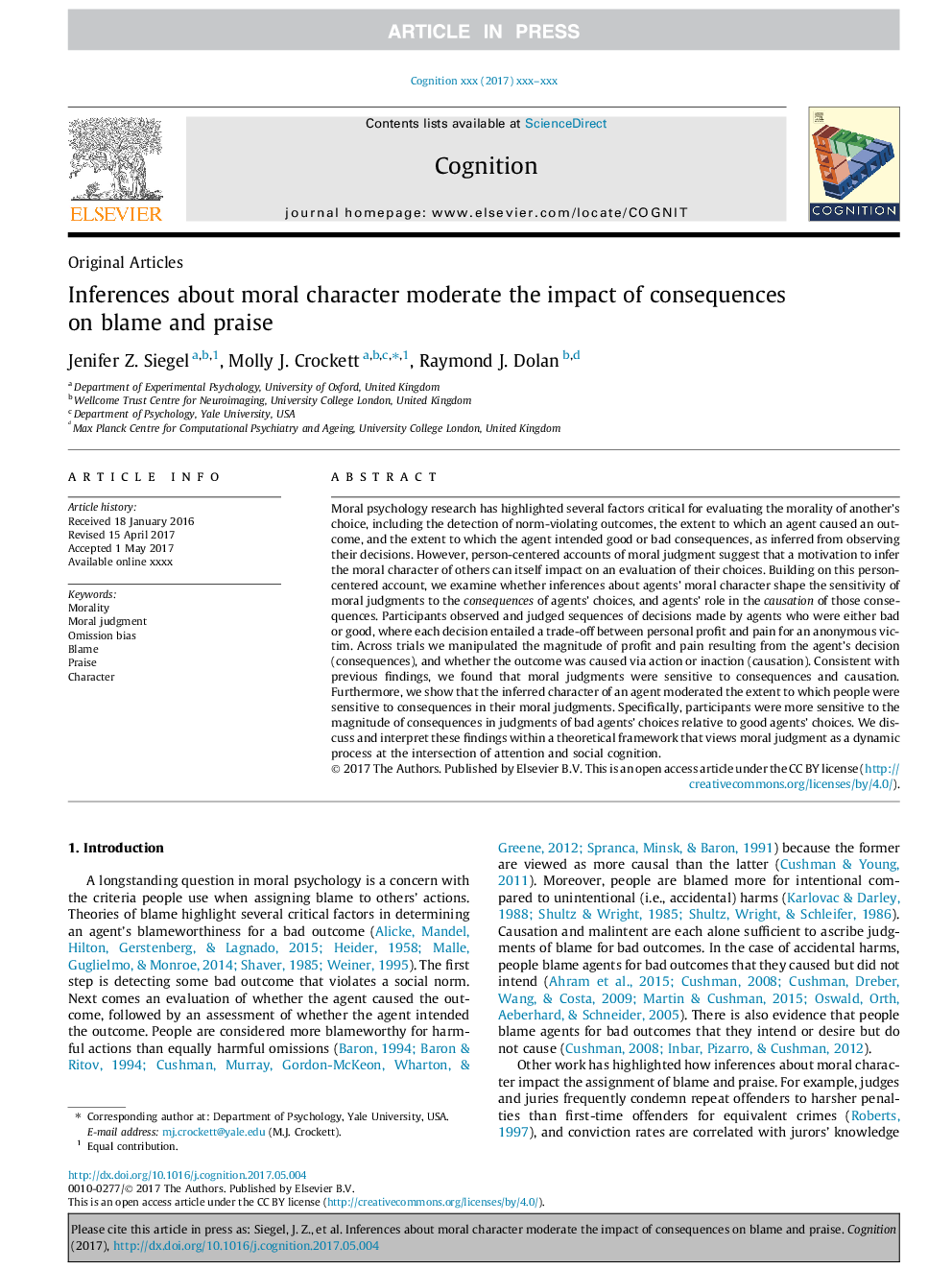ترجمه فارسی عنوان مقاله
استنتاج های مربوط به شخصیت اخلاقی، تاثیرات عواقب ناشی از سرزنش و ستایش را می سنجد
عنوان انگلیسی
Inferences about moral character moderate the impact of consequences on blame and praise
| کد مقاله | سال انتشار | تعداد صفحات مقاله انگلیسی |
|---|---|---|
| 124016 | 2017 | 11 صفحه PDF |
منبع

Publisher : Elsevier - Science Direct (الزویر - ساینس دایرکت)
Journal : Cognition, Volume 167, October 2017, Pages 201-211
ترجمه کلمات کلیدی
اخلاق، قضاوت اخلاقی، بی عدالتی، سرزنش ستایش شخصیت،
کلمات کلیدی انگلیسی
Morality; Moral judgment; Omission bias; Blame; Praise; Character;

